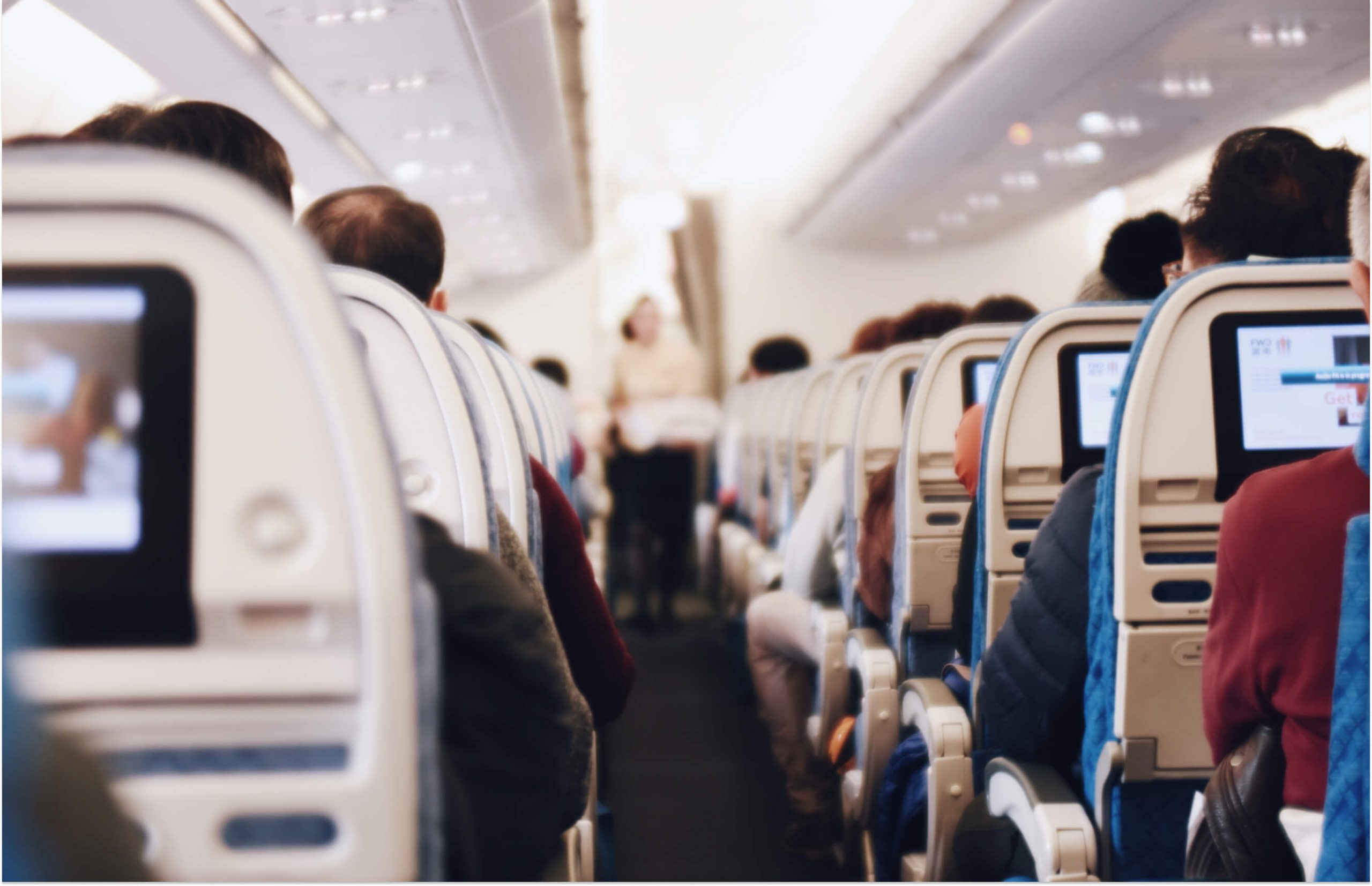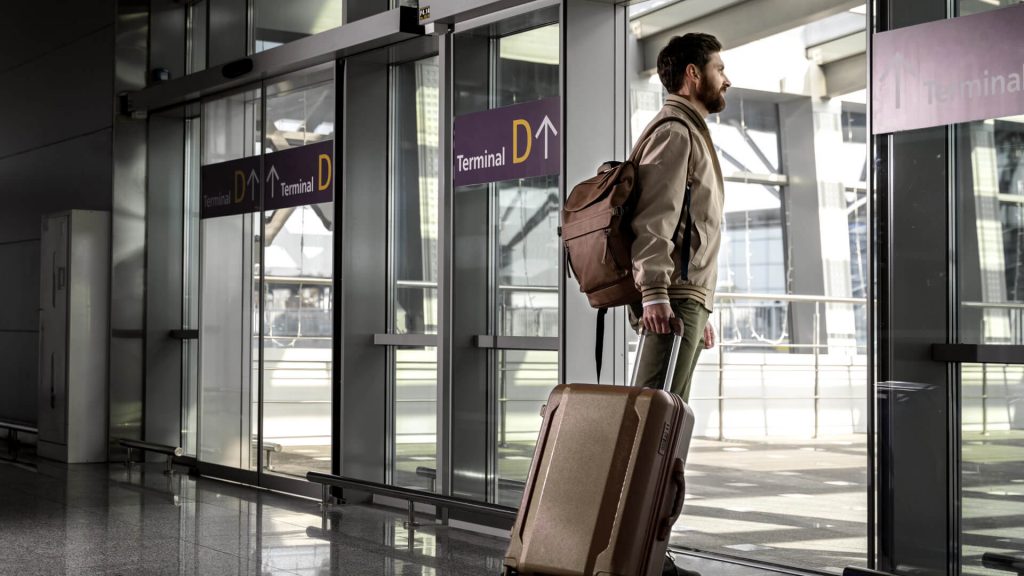Contact us to build a world-class travel and hospitality call center.

How to Create a Travel And Hospitality Call Center
The hospitality and travel industries operate 24/7/365 because people constantly find reasons to travel, regardless of season or occasion. In 2024, tourism in the EU reached an all-time high, with over 3 billion nights spent at tourist accommodations—the highest number ever recorded. With billions of people traveling both locally and globally each year, the need for travel and hospitality call center solutions has never been more evident.
Travelers rely on real-time updates from airlines, rental agencies, hotels, and more. Call centers are indispensable in such scenarios, offering immediate customer support regardless of the time or their query.
This article will guide you through the creation of a travel and hospitality call center, discussing the benefits of outsourcing and providing key tips for building one effectively.

What is a call center for hospitality industry?
Gone are the days when the hospitality industry relied solely on unidirectional communication. Today, the industry has embraced multidimensional communication channels, allowing customers to interact through various means: chat, phone, social media, email, and even face-to-face, depending on their preferences.
Call centers are an effective platform, helping reduce customer confusion and address queries in real time. Dedicated customer service agents work tirelessly to ensure smooth, enjoyable experiences for travelers, making each journey as safe and pleasant as possible.
Why should travel and hospitality companies have a call center?
Travel and hospitality companies strive to break into new local and international markets while meeting growing customer demands and expectations. Many of these companies are expanding their channels and providing new business opportunities.
By leveraging call centers, businesses can offer quick, smooth, and reliable services, enhancing their credibility and customer trust. Call centers provide cost-effective, scalable services that improve business functionality, customer connections, and market reach.
These centers act as a vital bridge between companies and their customers, ensuring satisfaction and building long-term loyalty. They ultimately drive profits and boost brand value.
Discover how we help leading airlines manage peak loads, reduce wait times, and keep service levels high year-round.
Get the whitepaper
Hospitality-specific customer service scenarios
Guest expectations in hospitality are high. A single interaction can shape how someone remembers their stay or whether they return at all. That’s where frontline agents play a critical role. Agents step in during high-stakes moments that require both precision and empathy:
- Last-minute reservation changes or cancellations
- Loyalty program support for frequent guests
- Escalations due to overbooking, room issues, or missed amenities
- Handling special requests: accessibility, early check-in, birthday surprises
- Real-time coordination with on-site staff when things go wrong
In these situations, fast replies alone aren’t enough. Agents need to resolve the issue while protecting the guest experience. That requires hospitality-specific training, local awareness, and the ability to turn service recovery into a loyalty opportunity.
Self-service solutions: easing the pressure on travel and hospitality call centers
Not every customer interaction requires a live agent. In travel and hospitality, many routine queries—like booking confirmations, check-in instructions, or cancellation policies—can be handled through self-service tools.
Digital self-service solutions, such as mobile apps, FAQ portals, automated emails, and AI-powered chat, empower guests to resolve issues on their own terms. This reduces call volumes, shortens wait times, and frees up agents to focus on more complex or high-stakes requests.
For example:
- A guest can confirm a booking or request a late check-out via an app instead of calling the front desk.
- A traveler can view real-time updates on hotel amenities or local services through a web portal.
- AI chatbots can assist with simple rebookings or FAQs 24/7, even during peak periods.
From workforce flexibility to smart outsourcing, our latest whitepaper shows how Simply Contact helps CX teams stay ready—season after season.
Get the whitepaper
Benefits of travel and hospitality call center outsourcing
Outsourcing call center support in the travel and hospitality industries brings both operational and economic advantages. A reliable partner helps companies deliver consistent, high-quality service without the overhead of managing it in-house.
Key benefits include:
- Full-service support across voice and digital channels, giving customers the flexibility to choose how they engage.
- Proactive communication about offers, delays, and disruptions, building trust, and reinforcing brand image.
- Faster response times through a trained, scalable team that handles high volumes efficiently.
- Seasonal flexibility: outsourced teams can quickly scale up or down to match peak and off-peak demand without compromising service quality.
- Expert handling of reservations, cancellations, and special requests for hotels, airlines, and packages.
- Professional support during high-stress situations, such as delays, overbookings, or lost luggage.
- Payment and transaction support to prevent frustration at key conversion points.
- Data analysis capabilities that surface traveler preferences, behavior patterns, and booking trends.
- A competitive edge: companies with well-run call centers consistently outperform those without structured support.
With the right partner, outsourcing goes beyond cost savings. It becomes a driver of guest satisfaction, loyalty, and long-term growth.

How to choose the right outsourcing partner
If you're not operating with a fully resourced in-house support team, outsourcing is a strategic move, but only when you choose the right partner. The wrong fit can lead to misaligned expectations, wasted time, and a direct hit to your customer satisfaction scores. Here's what to consider when selecting a call center for your travel or hospitality business:
Security and compliance
Customer data protection isn’t optional. Your outsourcing partner must follow strict security protocols and comply with industry standards such as PCI DSS or GDPR. This is especially critical when handling payment data, guest profiles, or booking details. Ask for documentation, audits, and case examples.
Industry expertise
Hospitality isn’t like retail or tech support. The guest journey is emotional, fast-moving, and often complex. Your partner should understand what’s at stake when a customer is stranded, when overbookings happen, or when loyalty members need white-glove treatment. Look for proven experience in your vertical, not just general BPO claims.
Transparency from day one
Strong partnerships are built on clarity. Choose a provider that’s upfront about costs, scope of service, SLAs, and responsibilities. You should never be guessing how something works or why a charge appears. Open communication is a sign of operational maturity and mutual trust.
Channel capabilities and service alignment
Guests want seamless experiences, no matter the channel. Make sure the call center supports the mix you need—phone, email, live chat, messaging apps—and is skilled in adapting service style to your brand. Ask how they train agents to deliver consistent experiences across all touchpoints.
Scalability and seasonal flexibility
Travel and hospitality experience constant fluctuations, from low occupancy weeks to high season surges. Your partner should be able to quickly scale agent teams without compromising service quality. Ask about their ramp-up processes, recruitment timelines, and how they maintain service levels under pressure.
Tips for effective call center operation
A well-run hospitality call center does more than handle customer requests—it supports consistent service, manages pressure, and adapts to change. The practices below help maintain quality and efficiency.
Provide ongoing training for employees
Continuous employee training is essential for maintaining high service standards. A recent study showed that companies with strong training programs experience a 24% higher profit margin than those without.
Train for empathy, not just policy
Script knowledge is basic. What sets agents apart is their ability to defuse tension and make a stressed guest feel heard. During training, role-play real hospitality scenarios, not generic call simulations.
Centralize knowledge for faster resolutions
Agents need immediate access to updated policies, room availability, loyalty program terms, and escalation paths. A centralized knowledge base reduces handle time and improves accuracy.
Implement AI in call center operations
Implementing AI in call centers can further enhance safety and efficiency by automating routine tasks, managing call traffic, and assisting with real-time customer queries. AI-driven solutions, such as chatbots, agentic AI, and predictive call routing, help reduce the need for constant human intervention, allowing agents to focus on more complex tasks while maintaining high service levels.
Summary
Hospitality customer service goes far beyond answering questions. Its goal is to create seamless, positive guest experiences before, during, and after a stay. From managing bookings and last-minute changes to handling complaints with empathy, agents in this space deal with high expectations and little room for error. They need to operate across multiple channels and time zones, often in several languages, while staying calm under pressure. Add in seasonal peaks, loyalty program requests, and special accommodations, and it’s clear that hospitality support requires both precision and flexibility. Whether managed in-house or outsourced, the success of a hospitality call center depends on how well it can deliver fast, helpful, and human service at scale.
Get fast answers to any remaining questions
Thank you.
Your request has been sent successfully.
Your request has been sent successfully.






